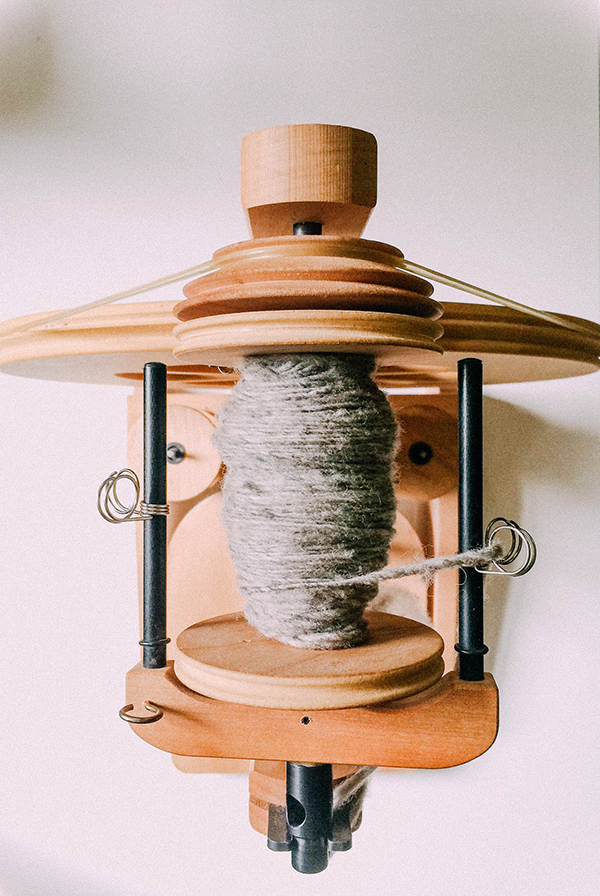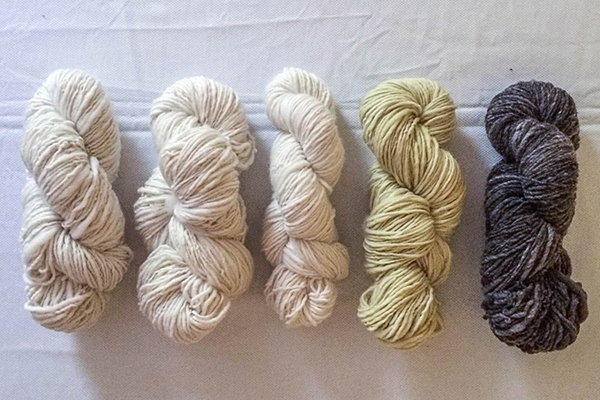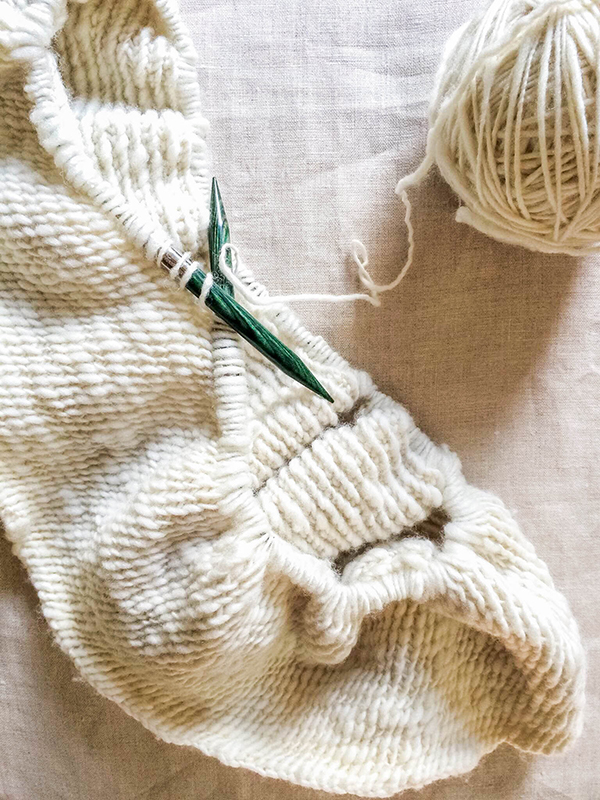
One of the first things I did when I got to Washington was go buy a new hook and yarn, because I’m finally in a region where I just might need a scarf. I love crocheting but ever since facing the fact that being a winter accessory maker in Los Angeles isn’t quite the dream, I haven’t picked up a hook in weeks. Another reason for that is that I’m trying to be a more conscious crafter, and I’ve learned that if yarn is cheap – it probably isn’t sustainable. Coming across Julie’s shop, The Sweet Wild, on Instagram (and finding out that she’s in Washington, too), I thought it was the perfect opportunity to talk to a pro about sourcing sustainable materials, and supporting the slow fashion movement. She was kind enough to tell me all about her business and process for today’s post. Check it out…

The Sweet Wild is an ethical fashion company specializing in luxury wool accessories. The wool for our products is sourced from small, local farms and our dye plants are all grown on-site. With principles founded in the Slow Fashion Movement, we strive to support a shift towards mindful manufacturing practices and help create awareness of the processes and materials involved in producing an item. When such attention is paid to creating a piece of clothing, aspects of daily life and work operations tend to improve. Living wages are paid, sustainable farming practices are implemented, communities are educated on trade skills (weaving, dyeing, spinning, sewing, tanning, etc.), and interdependence is encouraged within a society.

Deciding where to source materials is a defining decision for businesses to make. Cutting corners for profit is tempting and often makes the most fiscal sense for new, small businesses. But when the “true cost” of producing cheap materials is taken into account (i.e. environmental and social degradation, labor hazards, and large count production standards), an ethical choice must be made. This is why it’s important for small business owners to define their company values and determine what action steps are required to sustain them. Do you need consistent, unchanging, large batches of materials to meet your production needs? How do you want your raw materials to be grown/made/raised? Is supporting the local economy important to you and if so, what do you consider to be local? How flexible are you willing to be when making sourcing decisions?
That meant reaching out to the local yarn store owner for a list of local wool farmers, because this info isn’t always the easiest to track down, even online. Another interesting thing Julie told me about their company is that most of the designs of pieces aren’t conceptualized until after the wool has been washed, spun, and dyed. That way they can really think of the material they’re working with and dream up a design that fits it best.

The Slow Movement seeks to work with the notion that some materials are finite or produced slowly. For instance, a cold-climate slow foodie doesn’t expect serrano peppers to be available year-round. So why does our current society place that kind of pressure on our clothing systems?

The Slow Movement is exactly that: a movement. Sometimes, it is truly up to you to create opportunities and inspire your community. Sometimes, it must be your creative mind that shifts the thinking of those around you. And it is always within your power to make the informed choices that ignite a movement.
Thanks so much to Julie of The Sweet Wild for sharing her perspective and inspiring me to find the right fiber to work with for my next crochet project. If you’re interested in learning more, check out the links below and peruse The Sweet Wild shop for quality wool accessories.
[…] feature interviews with makers or sellers that they’re intrigued by. I recently posted an interview on my blog and the reason reached out to the shop owner (via Instagram) was because I felt like we had a lot […]